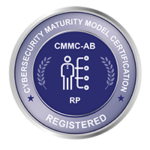
By: Brian Egenrieder, CRO, SyncDog
We live in a tech-centric world. On average, U.S. households contain 10 internet connected devices. When it comes to using some of those devices for work-related activities, employers start to sweat. The constant concern centers upon what happens to corporate data on these devices when accessing data using vulnerable network connections, when clicking on malicious links, or downloading questionable apps. Increased risks over the latter recently made headlines as companies (like Wells Fargo) have begun to ban TikTok from employee devices used for business. TikTok is a Chinese-owned app that has had several security flaws over the last couple of years; in some cases, flaws left users’ data vulnerable to hackers in the interim.
It shouldn’t be a surprise that people tend to become rather defiant when they’re told they can’t do something as simple as having a specific app on their phone, especially when those rules are being applied to a device they own personally. This is evident in the backlash Amazon received when they asked employees to delete TikTok, only to say it was an erroneous memo a mere five hours later due to discontent and media attention.
The effort involved in banning apps from employees’ devices is significant and requires a decision process that spans across multiple departments including operations, HR, legal and IT/security. It takes time and resources to accomplish. Our take? Stop fighting the battle to ban apps.
Instead, focus on building and deploying a containerized application solution across your workforce. Containerized applications offer the benefits of data encryption, explicit separation of personal and professional data on a single device, and ease of remote management. Containers sit on top of a device’s operating system (OS) making it lightweight while still protecting against manufacturer vulnerabilities, such as the recent iOS zero day vulnerability. Remotely deployable, containerized applications are perfect for the current work from home environment, especially as organizations elect to keep teams permanently remote.
Treating a containerized application as a virtual workspace is the perfect way to allow employees the freedom of using personal devices for business activities without infringing upon their privacy. By designing a virtual workspace that includes the most popular productivity tools, like Microsoft Office 365 (with full desktop-like functionality) employees are provided with what they need to complete daily responsibilities. Add in extra layers of security such as data encryption at rest, in use, and in transit, and you have a secure and user-friendly mobile work environment.
With a containerized application solution in place employees can be free to download whatever apps they wish without consequence to corporate data, alleviating security concerns and preventing tension between leadership and employees.
Looking for a containerized application solution provider? We here at SyncDog offer Secure.Systems to meet the growing needs and demands of remote workforces. Our team works closely with yours to design a fully customized virtual workspace. Learn more about our product and see how quick and easy it is to deploy here.
